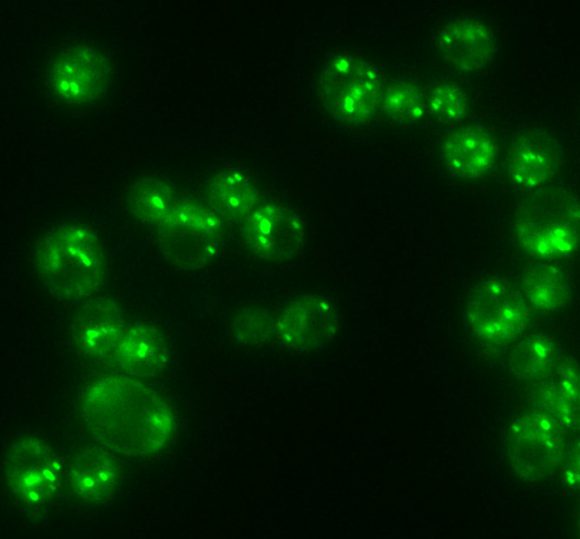
Fat is stored in lipid droplets (bright green spots) in yeast cells, which is analogous to how fat is stored in human tissue. Photo: Gil-Soo Han.
Rutgers researchers shed light on key enzyme’s role in human health.
George M. Carman, director of the Center and Board of Governors professor in the Department of Food Science, along with research assistant professor Gil-Soo Han, have found that the fat enzyme, known as phosphatidic acid phosphatase, plays a critical role in in making membrane lipid as well as fat storage.
The scientists already knew that this enzyme played a crucial role in the regulation of the amount of fat in the human body. The new research, published online in the Journal of Biological Chemistry in August, finds that getting rid of the enzyme entirely can increase the risk of cancer, inflammation and other ills. The enzyme determines whether the body’s phosphatidic acid will be used to create fat, or create the lipids in cell membranes. If you eliminate it to decrease fat storage, cells will make far more membrane lipids than necessary which permits the cells to grow uncontrollably, which is characteristic of cancer.
Read more about their discovery in Rutgers Today.

